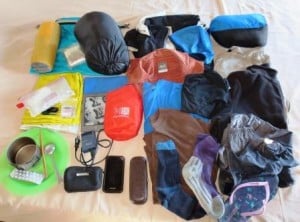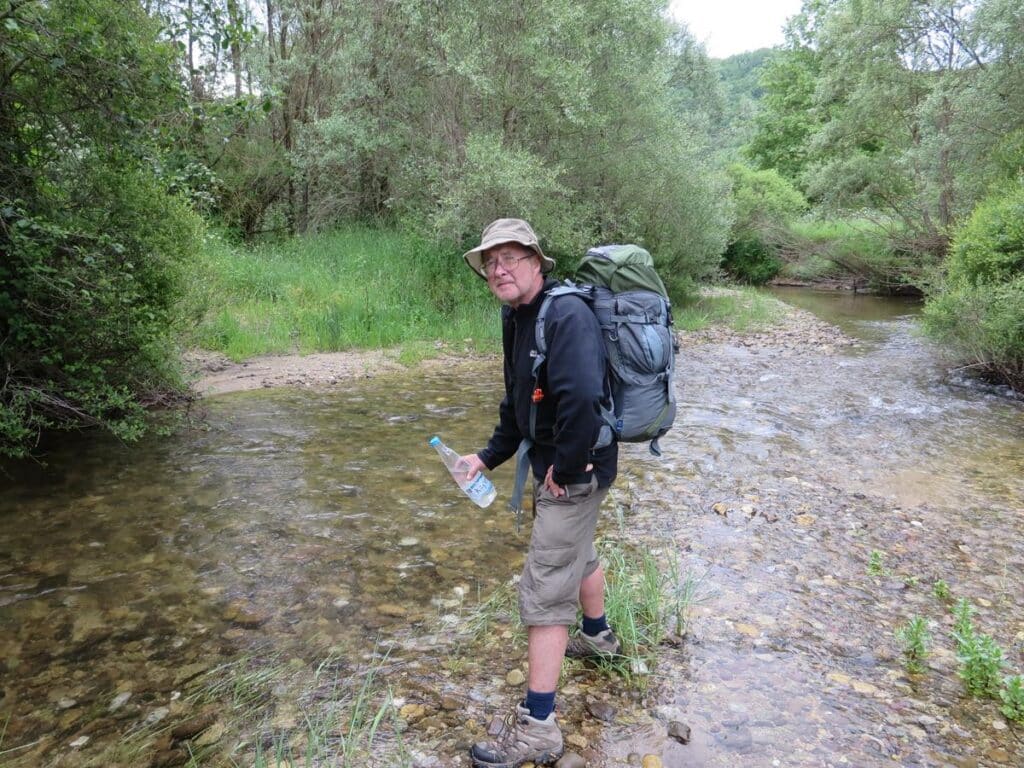
Most stories of long distance hikes start with tales of vast packs impossible to lift, and the agonies of blisters: an endurance test enough to put anyone off.
No, it doesn’t have to be like that. Even on our long trek through Greece our packs always weighed less than 12 kilos, including food and water. And we didn’t get blisters. I think the two things – blisters and pack weight – are related. If you put less weight on your feet, they’re less likely to get sore. The rest of your body will thank you too, and that’s particularly important as you get older.
Luckily, the manufacturers have caught up with the needs of us silver hikers. Lightweight – and even ultralight – gear has really taken off in the past couple of decades. After all, heavy packs are no fun for anyone.
Lightweight kit is more expensive, but there are bargains to be had, if you plan ahead and make the most of sales. Here’s the list of what we took on our long Greek hike.
Ultralight Outdoor Gear lists all equipment in weight order, and is a good place to start your research. Backpacking Light is another good source. And remember, the lightest kit is what you leave behind.
Of course, when hiking in Britain you can cut right down, especially if you are staying in B and Bs. On the South West Coast Path I used an Osprey 20 litre day pack. I could always find somewhere to buy a pasty or a clean T shirt, and it was a delight to barely feel the pack weight. You can see the photo of me with my pack on the South West Coast Path above.


